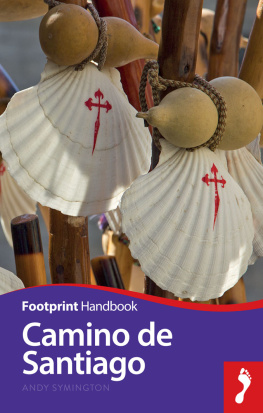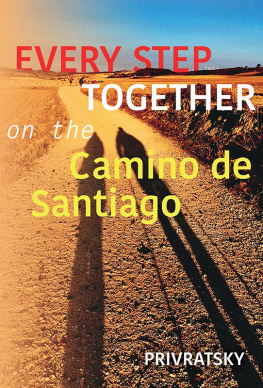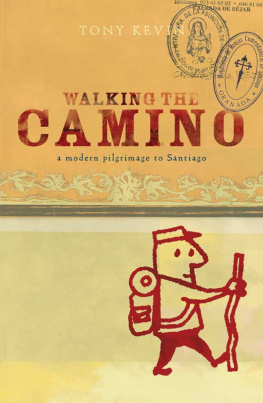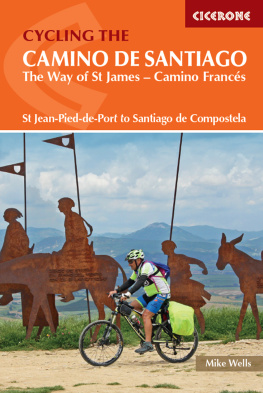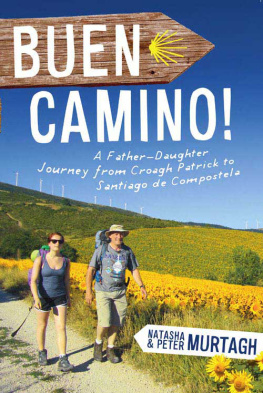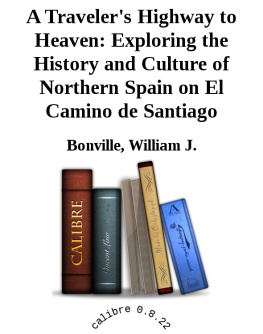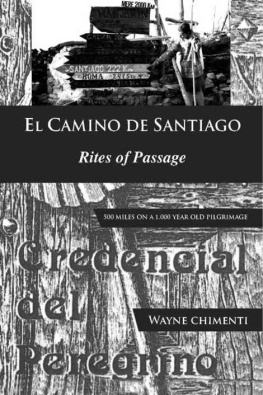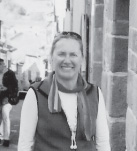A BOUT THE A UTHOR
M ARIE -L AURE V ALANDRO WAS BORN in 1948 in Tunisia and lived in Dijon, France, until the age of seven, when her family moved to Morocco and Algeria during the revolutionary years. At age eleven she returned with her family to France before moving to Boston four years later, where she received her B.A. in secondary education in the Romance languages and literature, and her M.A. in modern languages, literature, and drama.
Marie-Laure studied and earned a black belt in karate and gained an understanding of qi (life forces) from her Okinawan master. She taught high school in Boston before moving to Paris at twenty-three and furthering her studies at Sorbonne and began visiting sacred Christian sites in Europe. She taught in Paris and Vermont and then moved to Tehran in 1974 , where she taught technical English for several years and backpacked around the world between teaching assignments. After encountering Buddhism, she studied Vipassana meditation with Master Goenka in Qubec, England, and India.
While living in the Moslem world, Ms. Valandro studied Sufism, Zoroastrianism, and the Quran as practiced in the villages. After traveling throughout the East, she met her husband in Iran, had a child while in Vermont, and then, during the Ayatollah Khomeinis regime, returned to Tehran so that her husband could meet their son. She left after a year, refusing to raise her son in a dictatorship. Later, her husband left Iran, and they moved to New Hampshire, where they had a daughter.
Marie-Laure quit teaching and began studying Anthroposophy full time, while also working as a translator from French to English. At this point, she returned to painting, which had been abandoned in college. She met the art therapist Liane Collot dHerbois in Holland, who guided her in establishing the Liane Collot dHerbois Therapeutic Painting School in Wisconsin, the only training of its kind in the U.S.
Marie-Laure is an avid traveler and gardener.
T HE C ALL OF THE W ILD
R OBERT S ERVICE
Have you gazed on naked grandeur where theres nothing else to gaze on,
Set pieces and drop-curtain scenes galore.
Big mountains heaved to heaven, which the blinding sunsets blazon,
Black canyons where the rapids rip and roar?
Have you swept the visioned valleys with the green stream streaking through it,
Searched the Vastness for a something you have lost?
Have you strung your soul to silence? Then for Gods sake go and do it;
Hear the challenge, learn the lesson, pay the cost.
Have you wandered in the wilderness, the sagebrush of desolation,
The bunch-grass levels where the cattle graze?
Have you whistled bits of ragtime at the end of all creation,
And learned to know the deserts little ways?
Have you camped upon the foothills, have you galloped oer the ranges;
Have you roamed the air sun-lands through and through?
Have you chummed up with the mesa? Do you know its moods and changes?
Then listen to the wildits calling you.
Have you known the Great White Silence, not a snow-gemmed twig aquiver?
(Eternal truths that shame our soothing lies?)
Have you broken trails on snowshoes? Mushed with your huskies up the river,
Dared the unknown, led the way, and clutched the prize?
Have you marked the maps void spaces, mingled with the mongrel races,
Felt the savage strength of brute in every thew?
And though grim as hell the worst is, can you round it off with curses?
Then hearken to the Wildits wanting you.
Have you suffered, starved, and triumphed, groveled down, yet grasped at glory,
Grown bigger in the bigness of the whole?
Done things just for the doing, letting babblers tell their stories,
Seeing through the veneer of the naked soul?
Have you seen God in His splendors, heard the text that nature renders?
(Youll never hear it in the family pew.)
The simple things, the true things, the silent men who do things
Then listen to the Wildits calling you.
They have cradled you in custom, they have primed you with their preaching,
They have soaked you in convention through and through;
They have put you in a showcase; youre a credit to their teaching
But cant you hear the Wild?its calling you.
Let us probe the silent places, let us seek what luck betide us;
Let us journey to a lonely land I know.
Theres a whisper on the night-wind, theres a star agleam to guide us,
And the Wild is calling, calling let us go.
CAMINO WALK
where inner & outer paths meet
A FTER MANY YEARS OF thinking about a longer walk, the opportunity finally comes. My daughter is in college, my son out of college, and my husband understands that I am not happy unless I go on journeys. Now I can take advantage of this new freedom by doing what I used to do before Children: travel everywhere on a shoestring budget. Whenever Id had enough cash saved up from my teaching in various places I would invariably fly somewhere and take long walks to feel the land, visit sacred sites, learn peoples customs, religions, foods, languages, and so on. (I did not know then that I could have made a living doing just that.) Looking back, I see that, in all these seemingly random journeys, I visited many sacred places scattered around the earth. Now the Camino was calling, and I had to answer; fortunately, it wasnt so far away.
In the telling of the outward journey, I will mention many philosophers, poets, scholars, modern alchemists, Buddhist masters, scientists such as Rudolf Steiner, Georg Khlewind, Dennis Klocek, Christopher Bamford, Goenkaji, and many others, living and dead, who have been my companions for so many years through books and living words that helped shape my inner journey. Without these great guides, I would not be who I am today. We all know that there is no outer path without the inner path.
In April, two weeks before I left, I was agonizing over whether I should go. After going through a guilt trip and getting nowhere in my deliberations, I stepped into action mode. I ordered a womens backpack and helped myself to some clothes from my daughters National Outdoor Leadership School (NOLS) hiking trip to Patagonia. There I was, saying goodbye to husband, family, friends, and kids. I was off to France to begin my walk in Saint-Jean-Pied-de-Port for six weeks of rambling through mountain paths, forests paths, paths with lovely edges, farm fields, valleys, rocky hills, red-earth paths, ancient Roman roads, endless arid plateaus, soft green hills, sweet smelling soft paths, moorland, forgotten rocky paths in mountainous regions, busy highways, big cities, and villages. Here the words of Thoreau seem appropriate, from Jim Vickerys Wilderness Visionaries:
As a walker Thoreau remained a pilgrim, having met but one or two persons in his life who understood the art of walking, who had a genius for sauntering. A true walker, Thoreau said in his essay, requires a direct dispensation from heaven. As for himself, he couldnt at age thirty-four stay in his chamber for a single day without acquiring some rust. He stressed the importance of being awake to ones senses and that in his own walks at least he tried to shake off his morning occupations and obligations to society. It wasnt always easy to rid himself of the village, however, for the thought of some work would run in his head and he would not be where his body was. He would be out of his senses. What he wanted to do during his walks was


